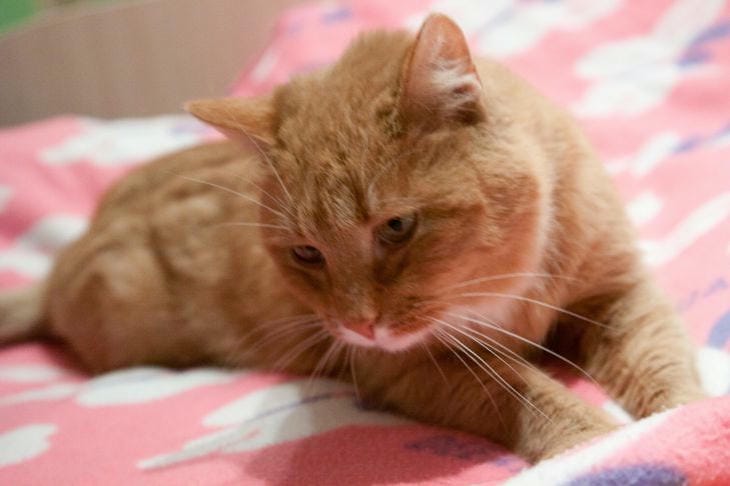- Night Hunters: Traces of Ancient Instincts
- Excess Energy: How Day Affects Nighttime Behavior
- Communication and Attention-Getting: What Does a Cat Want to Say?
- Stress and Anxiety: When Night Jogging Becomes a Symptom
- Natural Rhythms: The Importance of Circadian Cycles
- Environmental influences: the role of stimulus and entertainment
Why does a cat run around the house at night: the secret instincts of domestic hunters
Many cat owners are faced with the fact that their pets begin to actively run around the house at night.
This behavior may seem strange, especially if the cat is calm during the day.
However, this phenomenon has several explanations related to the natural instincts and behavioral characteristics of cats.
Night Hunters: Traces of Ancient Instincts
Cats are descendants of wild predators that lead a nocturnal lifestyle.
The ancient ancestors of domestic cats went hunting at night to get food, using the darkness for camouflage. Despite domestication, the instincts remained. At night, the cat feels a surge of activity, as if returning to its hunting roots.

She begins to run around the house, playing with imaginary prey, which is a reflection of natural needs.
Excess Energy: How Day Affects Nighttime Behavior
Cats, especially young ones, often store up energy during the day. In indoor living conditions, they may not have enough stimulation to stay active, leading to "energy explosions" at night.
The animal starts running, jumping and playing at the most inopportune moment, when its owners are resting. This can be compared to the desire to throw out accumulated energy.
Communication and Attention-Getting: What Does a Cat Want to Say?
Sometimes nighttime running can be a way to get attention. The cat may be feeling lonely or seeking interaction with its owner.
Night games, as a way of communication, are an attempt to attract attention and show affection. This is especially noticeable if the owner has spent little time with his pet during the day.
Stress and Anxiety: When Night Jogging Becomes a Symptom
Sometimes a cat's activity at night can indicate stress or anxiety. Moving, new people in the house, or changes in daily routine can all cause anxiety in the animal.
Night runs become a way to cope with emotional stress, although they may seem restless or aimless.
Natural Rhythms: The Importance of Circadian Cycles
Cats, like many animals, follow their circadian rhythms. At night, they experience a surge of activity that coincides with natural cycles. This biological rhythm sets the body up for wakefulness during the dark hours.
Despite the owners' efforts to accustom their cats to daytime activity, their internal "clock" often continues to insist on nighttime adventures.
Environmental influences: the role of stimulus and entertainment
A cat's environment also plays a major role in its behavior. If the animal lives in an environment with little stimulation, it may begin to seek entertainment at night.
Lack of toys, space to play, or interaction with other animals can cause your cat to become active in search of new experiences. Providing your pet with appropriate stimuli during the day can reduce its nighttime activity.
